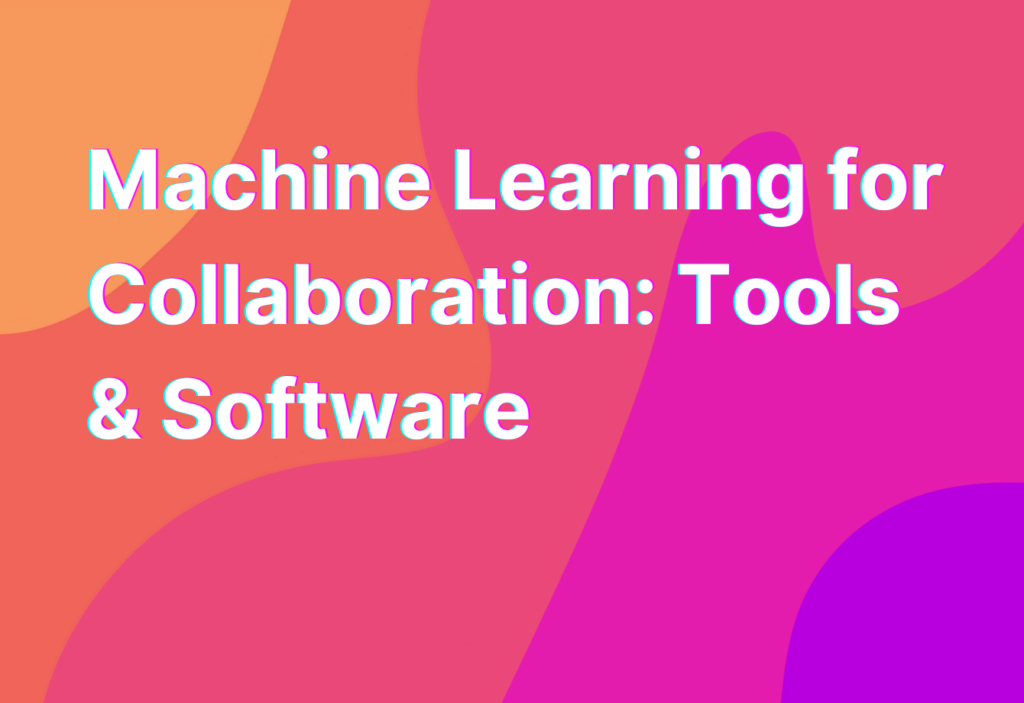Machine Learning for Collaboration: Tools & Software
Hey there, remote work enthusiasts! Ashley here, your go-to gal for all things remote work. Today, I want to dive into the fascinating world of machine learning and how it can revolutionize collaboration in remote teams. So grab your favorite cup of coffee and let’s get started!
What is Machine Learning?
Before we jump into the nitty-gritty details, let’s quickly cover the basics. Machine learning is a subset of artificial intelligence that focuses on enabling computers to learn and make decisions without explicit programming. In simpler terms, it’s all about teaching machines to learn from data and improve their performance over time.
Now that we have a basic understanding of machine learning, let’s explore how it can enhance collaboration in remote teams.
1. Automated Language Translation
One of the biggest challenges in remote collaboration is overcoming language barriers. Thankfully, machine learning has come to the rescue with automated language translation tools. These tools use advanced algorithms to translate text in real-time, making it easier for team members who speak different languages to communicate effectively.
One popular tool in this space is DeepL Translator. It uses neural networks to provide highly accurate translations, even for complex sentences. With machine learning-powered translation tools, language barriers are no longer a hindrance to effective collaboration.
2. Sentiment Analysis
Understanding the sentiment behind written communication is crucial for effective collaboration. Machine learning algorithms can analyze text and determine the sentiment, whether it’s positive, negative, or neutral. This can be incredibly useful in remote teams, where non-verbal cues are often missed.
Tools like IBM Watson Natural Language Understanding use machine learning to analyze text and extract sentiment. By understanding the sentiment of team members’ messages, remote teams can better gauge the overall mood and address any concerns or issues promptly.
3. Intelligent Document Organization
Remote teams often collaborate on various documents, making it challenging to keep everything organized. Machine learning can help by automatically categorizing and tagging documents based on their content. This makes it easier for team members to find the information they need quickly.
One tool that excels in this area is Trello. With its machine learning capabilities, Trello can intelligently categorize and organize documents, making collaboration a breeze. No more wasting time searching for that important document buried deep in a folder!
4. Predictive Task Management
Managing tasks and deadlines is crucial for remote teams to stay on track. Machine learning can take task management to the next level by predicting potential delays and suggesting adjustments to the schedule.
A tool like Asana leverages machine learning to analyze historical data and predict potential bottlenecks. By proactively identifying potential issues, remote teams can take corrective actions and ensure projects stay on schedule.
5. Virtual Assistants
Who doesn’t love a helpful assistant? Machine learning has paved the way for virtual assistants that can assist remote teams with various tasks. These assistants can schedule meetings, answer questions, and even provide insights based on data analysis.
One popular virtual assistant is Google Assistant. With its machine learning capabilities, Google Assistant can help remote teams stay organized and productive. Just ask, and it shall assist!
Wrapping Up
Machine learning is revolutionizing collaboration in remote teams. From automated language translation to predictive task management, these tools and software are making remote work more efficient and enjoyable.
If you’re interested in exploring more collaboration tools, check out our article on metadata tools to boost collaboration. Trust me, you don’t want to miss it!
That’s all for now, folks! Stay tuned for more remote work tips and tricks. Until next time, keep collaborating and embracing the power of machine learning!


